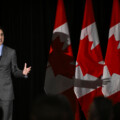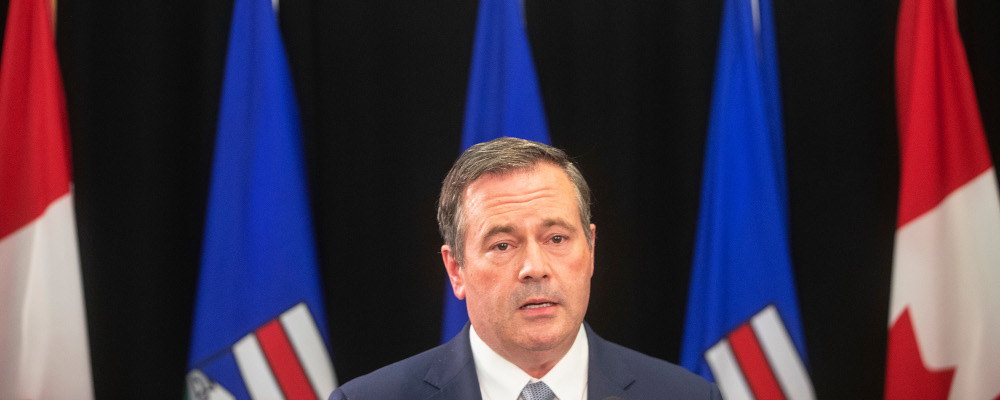Jason Kenney’s swift resignation as United Conservative Party leader is a lamentable outcome for Canadian conservatism. It reflects the rise of an oppositional mindset on the Right that is bad for Conservative politics and the country as a whole to the extent that it marginalizes centre-right ideas and enables progressives to govern essentially unchecked.
Alberta’s Kenney-led government wasn’t perfect—no government ever is—but it was the country’s most ambitious centre-right provincial government since the Harris government’s Common-Sense Revolution in Ontario more than a quarter-century ago.
There was virtually no area of provincial policy, from taxes and spending to education to health care and everything in between, that wasn’t the subject of energetic reform. The totality of the government’s reformist impulses shifted the Alberta government decidedly in a more conservative direction and in so doing set out a policy playbook for other provincial Conservatives to draw from.Jason Kenney’s critics are wrong. Alberta is the only place conservatism is winning https://nationalpost.com/opinion/sean-speer-jason-kenneys-critics-are-wrong-alberta-is-the-only-place-conservatism-is-winning
One would think that such a successful agenda would have widespread support among Conservatives (and conservatives). Yet nearly half of UCP members who cast ballots in the party’s leadership review disapproved of Kenney’s leadership.The final tally of the leadership review came at 51.4 percent approval of Kenney’s leadership and 48.6 percent disapproval.
The obvious question is: what gives?
Even accounting for the naked ambitions of some of the anti-Kenney forces such as the self-evidently unserious Brian Jean or serially foolish Danielle Smith doesn’t quite explain it. There’s something bigger going on.
There’s a small yet spirited minority of grassroot conservatives who’ve come to define their politics in solely oppositional terms. It derives from a position of perceived weakness in modern society. They see mainstream institutions (including corporations, universities, and the media) succumbing to an assertive form of progressivism and feel increasingly embattled in a culture that at times can be quite hostile to their ideas and values. These feelings of powerlessness, marginalization, and condescension are reinforced by online sources and American conservative media.
The result is a siege mentality that’s more reactionary than it is conservative. These people aren’t interested in incremental policy reforms. They’re looking for a fight. They want to toss a hand grenade into the cathedralA brief explanation of the cathedral https://graymirror.substack.com/p/a-brief-explanation-of-the-cathedral?s=r of our mainstream institutions.
This oppositional conservatism has of course been exacerbated by the COVID-19 lockdowns. The entire pandemic experience laid bare in their minds the corruption of the political and expert classes. The so-called “freedom convoy” was the clearest expression of their anger. Now Kenney’s sacking is its most significant.
There will be plenty of opportunity in the coming days to assess the political fallout of his departure including the strong likelihood that it will lead to an NDP government in the forthcoming provincial election. But permit me to make a big-picture point about what it means for Canadian conservatism.
Conservatism’s instinct to conserve can put it at something of a structural disadvantage against the false yet compelling utopian politics of modern progressivism. Conservatives have to be the ones that raise questions about costs, trade-offs, and inadvertent consequences. This invariably risks sounding a bit negative or gloomy.
Conservatives must therefore balance their inherent realism by being aspirational and confident. They need to bring their ideas and values to bear on the key issues facing their society in the form of an affirmative agenda of steady yet sensible reform.
This necessarily involves the hard work of ideation, policy development, and implementation. It’s not as easy or fun as throwing hand grenades but the long-run payoff is far greater. As my former boss Stephen Harper once said: “if you make conservatism relevant to ordinary working people, you make the most powerful political philosophy in Western democratic society.”Working class returning to fold, Harper says https://www.theglobeandmail.com/news/national/working-class-returning-to-fold-harper-says/article701725/
The forces that have led to Kenney’s departure aren’t interested in or capable of making conservatism relevant to ordinary working people. They have nothing of an affirmative agenda. They are agents of outrage and that’s it.
I rarely write in the first person at The Hub so as to convey a sense of dispassion and detachment. It’s hard for me to maintain that tonight. I was attracted to conservatism as a young person because I thought its understanding of the world was good and right. Its emphasis on the dignity of individuals, respect for tradition and long-standing institutions, and recognition of the deep complexity of the economy and society provided a strong philosophical framework for thinking about old and new problems.
I don’t see any of that in this leadership result. Instead, I see a scared and angry minority that doesn’t define itself based on what’s good and right but rather by a sense of embattlement and opposition.
The short-term cost of their political paroxysm is the best conservative premier in the country. The longer-term cost may be to the character of Canadian conservatism itself.
Recommended for You

The Notebook by Theo Argitis: Carney’s One Big Beautiful Tax Cut, and fresh budget lessons from the U.K.

Ginny Roth: How vacant liberal nationalism left Canada worse off than George Grant even imagined

Peter Menzies: Justin Trudeau’s legislative legacy is still haunting the Liberals

‘Our role is to ask uncomfortable questions’: The Full Press on why transgender issues are the third rail of Canadian journalism




